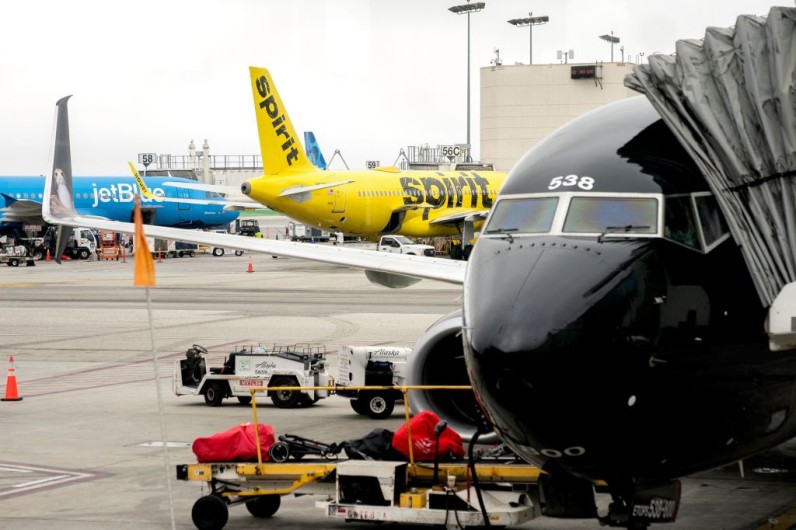A federal judge on Tuesday blocked JetBlue Airways' planned $3.8 billion acquisition of Spirit Airlines after agreeing with the Department of Justice that the deal would reduce competition that can harm price-sensitive fliers.
According to Reuters, William Young, a US district judge in Boston, concluded that the JetBlue-Spirit merger would substantially lessen competition and eliminate "Spirit's unique, low-price model," harming passengers who rely on the Florida-based airline's cheaper fares.

Judge Blocks JetBlue Airways From Acquiring Spirit Airlines
The judge found the deal violated US antitrust law. Young said the merger would also eliminate Spirit Airlines' ability to put pressure on other higher-priced airlines, including JetBlue, to lower ticket prices. On average, he noted that rivals cut prices by 7% to 11% when Spirit enters a market.
The Guardian reported that Young wrote that the proposed merger between the two airlines "does violence to the core principle of antitrust law: to protect the United States' markets - and its market participants - from anticompetitive harm." The ruling marked a victory for the Biden administration in its efforts to maintain lower-cost airline tickets for consumers.
President Joe Biden hailed the court decision. In a statement, Biden said: "Capitalism without competition isn't capitalism - it's exploitation. Today's ruling is a victory for consumers everywhere who want lower prices and more choices. My administration will continue to fight to protect consumers and enforce our antitrust laws."
The Justice Department, together with Democratic state attorney generals from six states, had previously noted that allowing the merger would eliminate "a vital source of low-cost competitive disruption along more than 375 routes," causing almost $1 billion of net harm yearly to consumers.
What's Next for JetBlue Airways and Spirit Airlines
In a joint statement, JetBlue Airways and Spirit Airlines said they disagreed with the ruling and were evaluating their next steps. The airlines could still appeal the ruling.
"We continue to believe that our combination is the best opportunity to increase much needed competition and choice by bringing low fares and great service to more customers in more markets while enhancing our ability to compete with the dominant US carriers," the two airlines noted.
"JetBlue's termination of the Northeast Alliance and commitment to significant divestitures have removed any reasonable anti-competitive concerns that the Department of Justice raised," they added.
JetBlue's legal team had called the case a "misguided" challenge to a merger between the country's sixth- and seventh-largest airlines, which combined would control around 10% of a domestic market dominated by four larger airlines.
After a series of previous airline mergers that the federal government agreed on, the four biggest US airlines - United, American, Delta, and Southwest - now control 80% of the market.







Join the Conversation